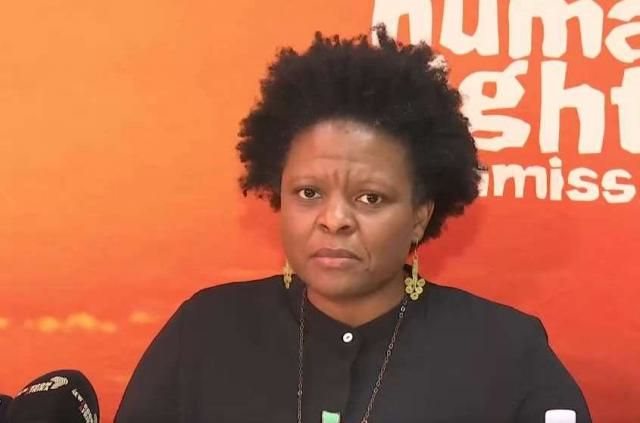
The violence and destruction also caused damage to infrastructure and businesses costing South Africa’s economy some R50bn, with a further two million jobs being lost or affected.
Speaking at the release of the report, SAHRC Commissioner Philile Ntuli said the commission found that myriad factors contributed to the outbreak of destruction and violence during the riots.
“The violence and destruction were symptomatic of unresolved systemic conditions, including post-Covid-19 economic recovery, high unemployment, lawlessness, discrimination, socio-economic divides, and issues within the security sector.
“The Commission concluded that organised groups and individuals opportunistically exploited these conditions to attempt to usurp the rule of law,” Ntuli said.
The SAHRC made a series of findings on and recommendations for each issue - including on the South African Police Service and the country’s intelligence services.
The full report can be obtained at here.
Ntuli described the unrest as a well-orchestrated and a “violent culmination of deep-rooted political and social challenges” that South Africa had been facing.
“The unrest was largely attributed to typologies of organisation and orchestration of public discord, crime and protest.
“Evidence indicated that the acts during the unrest were well-orchestrated, including the blocking of the N3, destruction of factories and warehouses, attack on government communication facilities, and bombing and theft of ATMs. These events were interconnected and required significant resources.
“Two types of actors were identified during the unrest: primary actors, who led and executed widespread destruction, and secondary actors, who participated in theft. The timing of the events coincided with the incarceration of former President Jacob Zuma, leading to a perception that the two were related,” Ntuli said.
Ntuli said while evidence suggests that the unrest was well orchestrated, the Commission “did not receive clear evidence identifying specific groups or individuals as primary actors, while… the common purpose or intention behind the unrest remained unclear”.
In her concluding remarks, Ntuli said the July 2021 unrest must be a “marker and a lesson” as South Africa continues its journey “from our colonial past”.
“Building a united, inclusive, safe and prosperous South Africa requires confronting the past, acknowledging present challenges, and working together for positive change. The unrest was a wake-up call, nudging us all to the reality of the fragility of the peace and security that some enjoy.
“It was a reminder that the process of democracy and constitutionalism has to benefit all, if it is to be sustained. It was a confrontation with the reality that the Bill of Rights must be realised for all, and particularly for those of whom the same rights were deprived by the colonial and apartheid governments,” she said.
SAnews.gov.za is a South African government news service, published by the Government Communication and Information System (GCIS). SAnews.gov.za (formerly BuaNews) was established to provide quick and easy access to articles and feature stories aimed at keeping the public informed about the implementation of government mandates.
Go to: http://www.sanews.gov.za